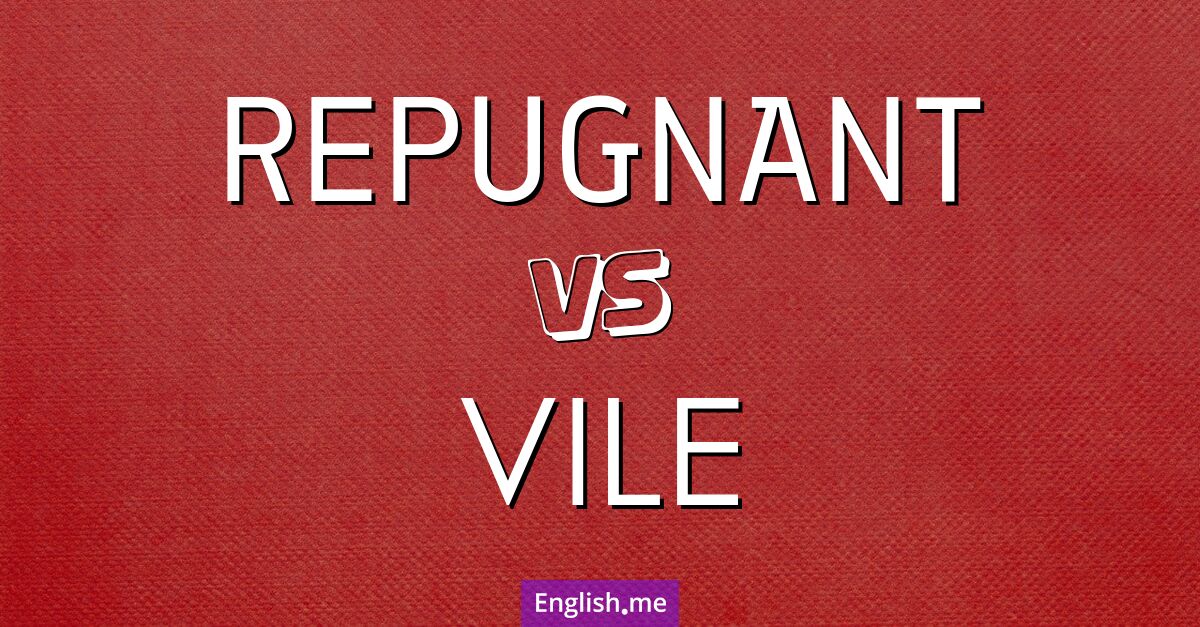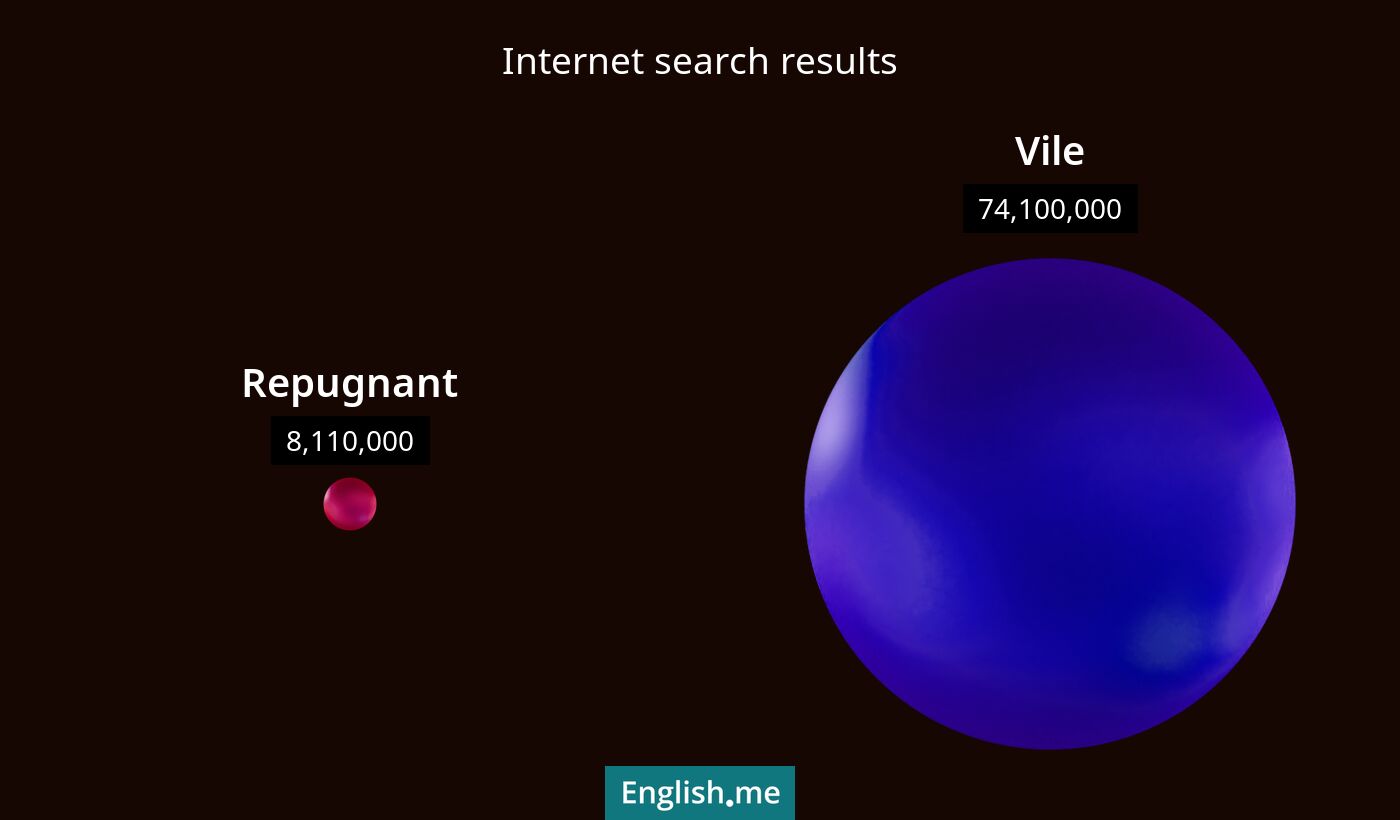Comparing "repugnant" and "vile": shades of distaste
Reviewed and edited by  Lloyd Cooper 06/11/2024, 00:18
Lloyd Cooper 06/11/2024, 00:18
English.me team member

 What is similar?
What is similar?
Both "repugnant" and "vile" describe something extremely unpleasant or offensive. They can be used interchangeably in some contexts where moral or emotional disgust is being conveyed.
 What is different?
What is different?
"Repugnant" often conveys a strong sense of moral or ethical aversion, indicating something that is deeply offensive or objectionable to a person's values or principles. "Vile", on the other hand, is a more general term for something disgusting or wicked, and it can describe anything from taste, smell, behavior to character.
 Which one is more common?
Which one is more common?

 Examples of usage
Examples of usage
Repugnant- The notion that inequality is justified is repugnant to many.
- His repugnant behavior at the meeting appalled his colleagues.
- She found the idea of cheating on the exam absolutely repugnant.
- The vile smell coming from the trash bin made everyone leave the room.
- He uttered a vile curse before storming off.
- The food was so vile that it was inedible.

 English
English español
español française
française italiano
italiano deutsche
deutsche 日本語
日本語 polski
polski česky
česky svenska
svenska Türkçe
Türkçe Nederlands
Nederlands